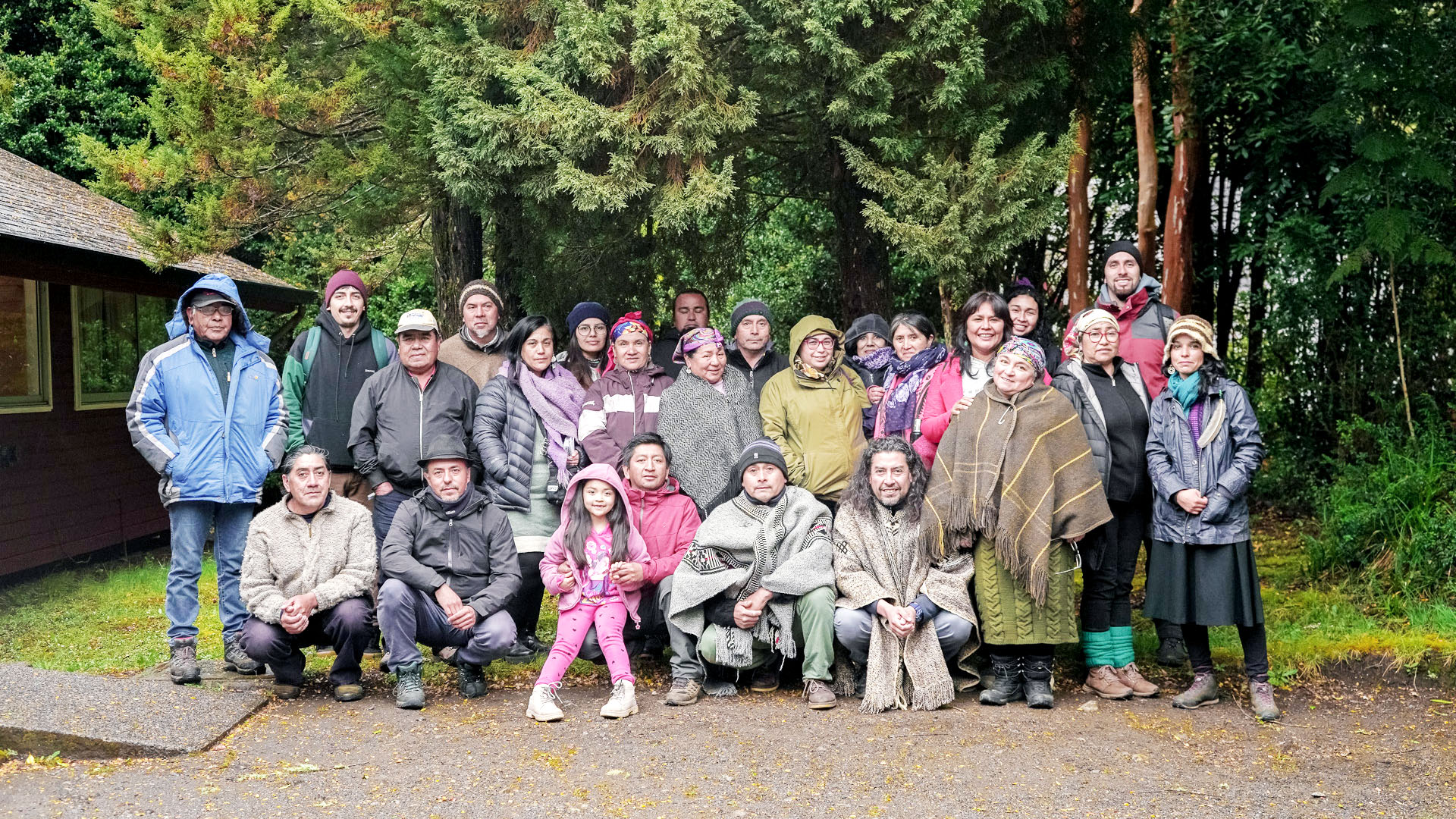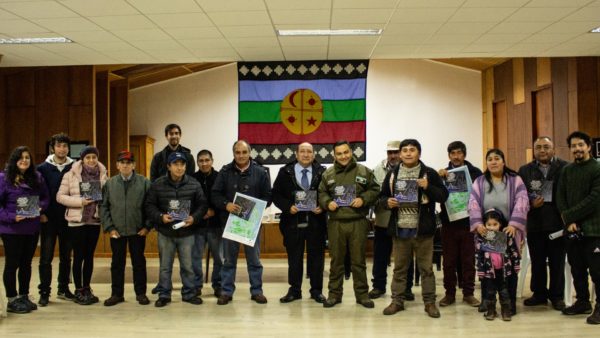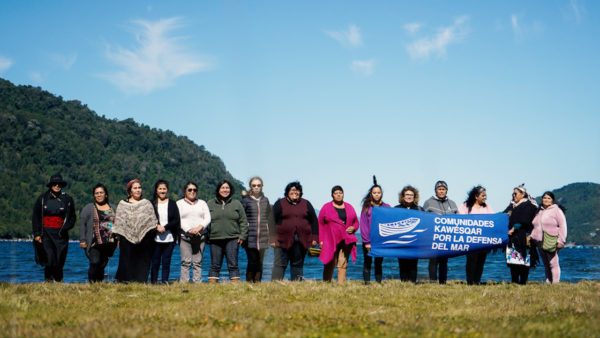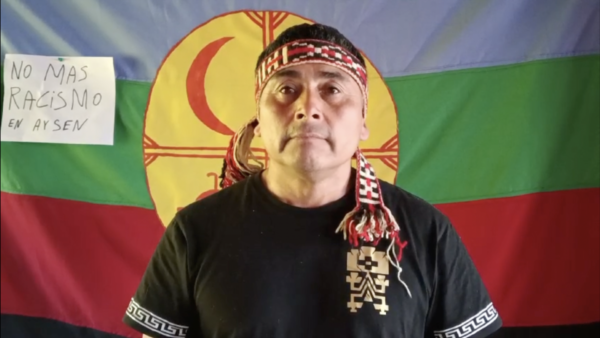Perspectives and Actions Towards Conservation and Governance of Territories of Life in Chile
First published on 04/22/2025
By Simón Crisóstomo Loncopán, coordinator of the ICCA Network in Chile; and Karina Vargas Hernández, regional coordinator for the Southern Cone, on behalf of Observatorio Ciudadano, ICCA Consortium.
Translation into English by Lars Akerson. Bilingual revision by Josefina Boris.
A year after the gathering in Budilewfv territory, or Lake Budi, the ICCA Network in Chile met in person again to further deepen collective reflection, build networks of solidarity, exchange experiences, and engage in mutual learning.
So, in the lush native mountain forest —ancestral territory of the Ñielay Mapu Community, inside the the current Puyehue National Park in the south of Chile— 30 representatives from diverse territories of life, communities, and allied organizations met for three days. The purpose was to share and analyze experiences, perspectives, and collective actions for the conservation and governance of territories of life in Chile that address the threats they face. The gathering also allowed the group to reflect and establish agreements that advance the consolidation and strengthening of the ICCA Network in Chile.
Day 1: Arrival and learning about the struggles of the Ñielay Mapu Community
The first day included a planned excursion through the ancestral territory of the Ñielay Mapu Community to visit sites of cultural and spiritual significance, located today within Puyehue National Park. However, a snowstorm (in spring no less) hampered these plans. Even so, sheltered by the fire, the community shared with us their struggle and political work to address the various threats they face, including hydroelectric projects, the hotel industry, and the landholders seeking to withdraw the national park. They also shared the current process within the Indigenous Consultation framework, which they demanded through legal action and is now being implemented by the Ministry of National Assets with regard to the demarcation of the boundaries of Puy hue National Park. Through this consultation, they seek to ensure their vision of territorial governance into the park, demanding recognition as a territory in which the community has lived for generations.
The day concluded with a dinner prepared by the community, where everyone shared with Mapuche families and territorial leaders.
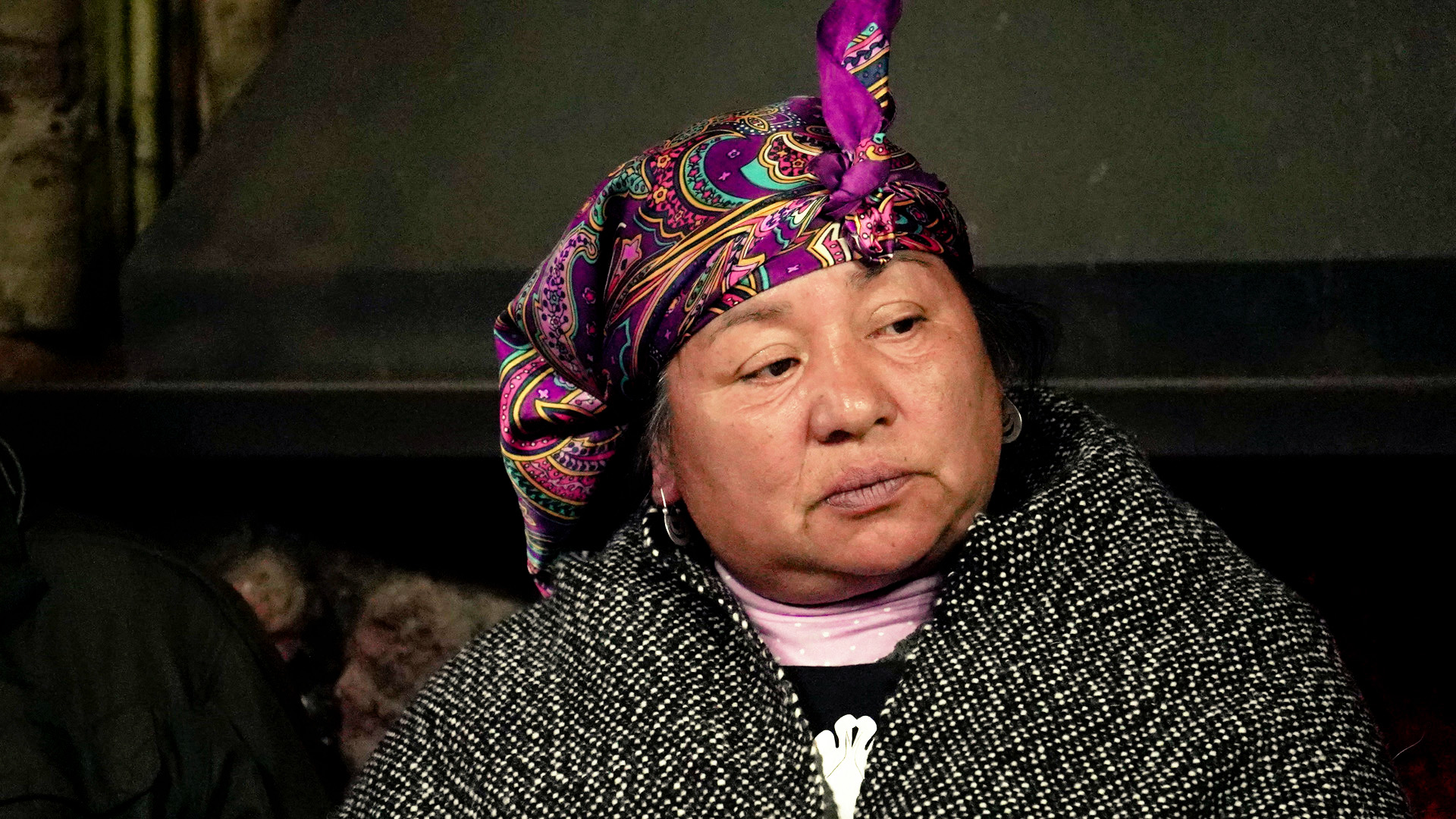
Day 2: Exchange of experiences and collective reflection
The second day focused on sharing and analyzing the current Chilean context with regard to the governance processes of Indigenous Peoples in state-recognized protected areas. These processes are carried out by members of the ICCA Network in Chile, as well as by allied communities and organizations.
Simón Crisóstomo Loncopán, coordinator of the ICCA Network in Chile
Three cases of Indigenous territorial conservation, governance, and safeguarding were presented:
- The case of Budi Anumka, who shared their work on ecosystem regeneration through the restoration of wetlands and reforestation of native forests. They also presented how it is possible to advance in conservation and governance processes through restoration efforts.
- The governance of Coastal and Marine Spaces of Indigenous Peoples (ECMPO), marine and coastal areas claimed by Indigenous communities under Law 20.249, also known as the “Lafkenche Act.” This legislation allows a defined marine area to be granted to a community or association of communities for administration, in order to safeguard the customary uses of the territory and ensure the conservation of the natural resources found there. At the present time, several organizations are working to establish marine conservation areas managed by Indigenous communities themselves within the Management Plan for these areas. The contributions and active participation of women are highlighted in the governance of these areas.
- The Futa Mawiza initiative, developed in the context of GEF-7 ICI, which is taking place in Kurarewe and Panguipulli territories. It aims to strengthen safeguarding and governance efforts for the Futa Mawiza Biocultural Territory (a vast mountain forest) through a process of self-empowerment based on the cosmovision, knowledge, and traditional practices of the Mapuche people, to fully exercise of their collective rights. These include territorial and cultural rights, as well as the ability to define their own development priorities.
In addition, other member and invited organizations reflected on and shared their work with the aim of evaluating actions to expand state recognition of Indigenous territorial conservation.
Perspectives and Actions Towards Conservation and Governance of Territories of Life in Chile
Likewise, the recently approved Act 21.600 was discussed and analyzed. This legislation establishes the creation of the National Service for Biodiversity and Protected Areas. Despite its shortcomings with regard to the rights of Indigenous peoples enshrined in international law, this law represents a significant step forward by guaranteeing Indigenous peoples’ participation in the governance of Protected Areas. Article 62 also creates Indigenous Conservation Areas, spaces that will be administered by Indigenous communities and organizations and which will be integrated into the National System of Protected Areas recognized by the Chilean state.
The group also reflected on the new Kunming-Montreal Global Biodiversity Framework. Through Goal 3, this framework aims to conserve critical marine and terrestrial areas for biodiversity by 2030, including Indigenous territories.
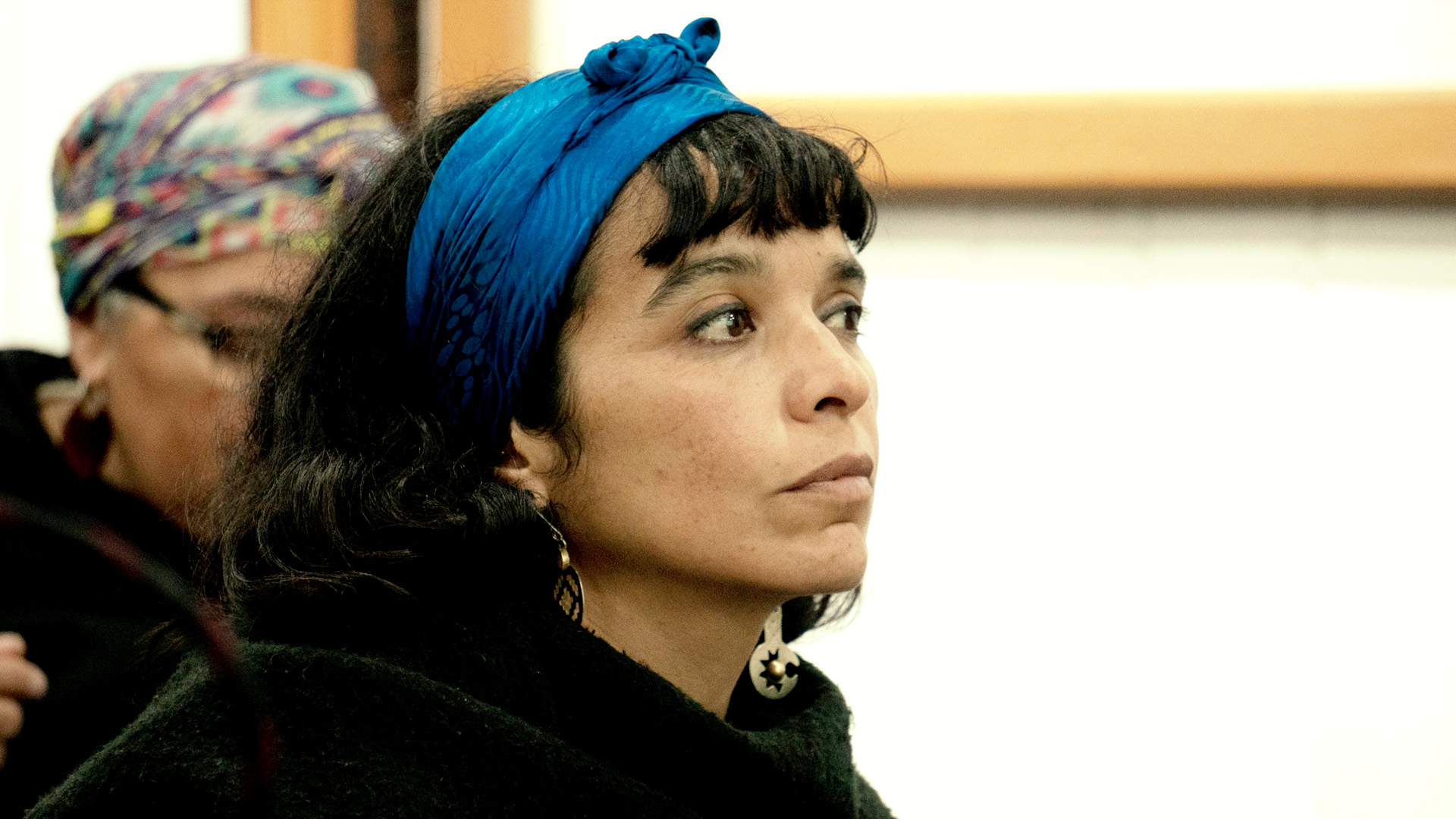
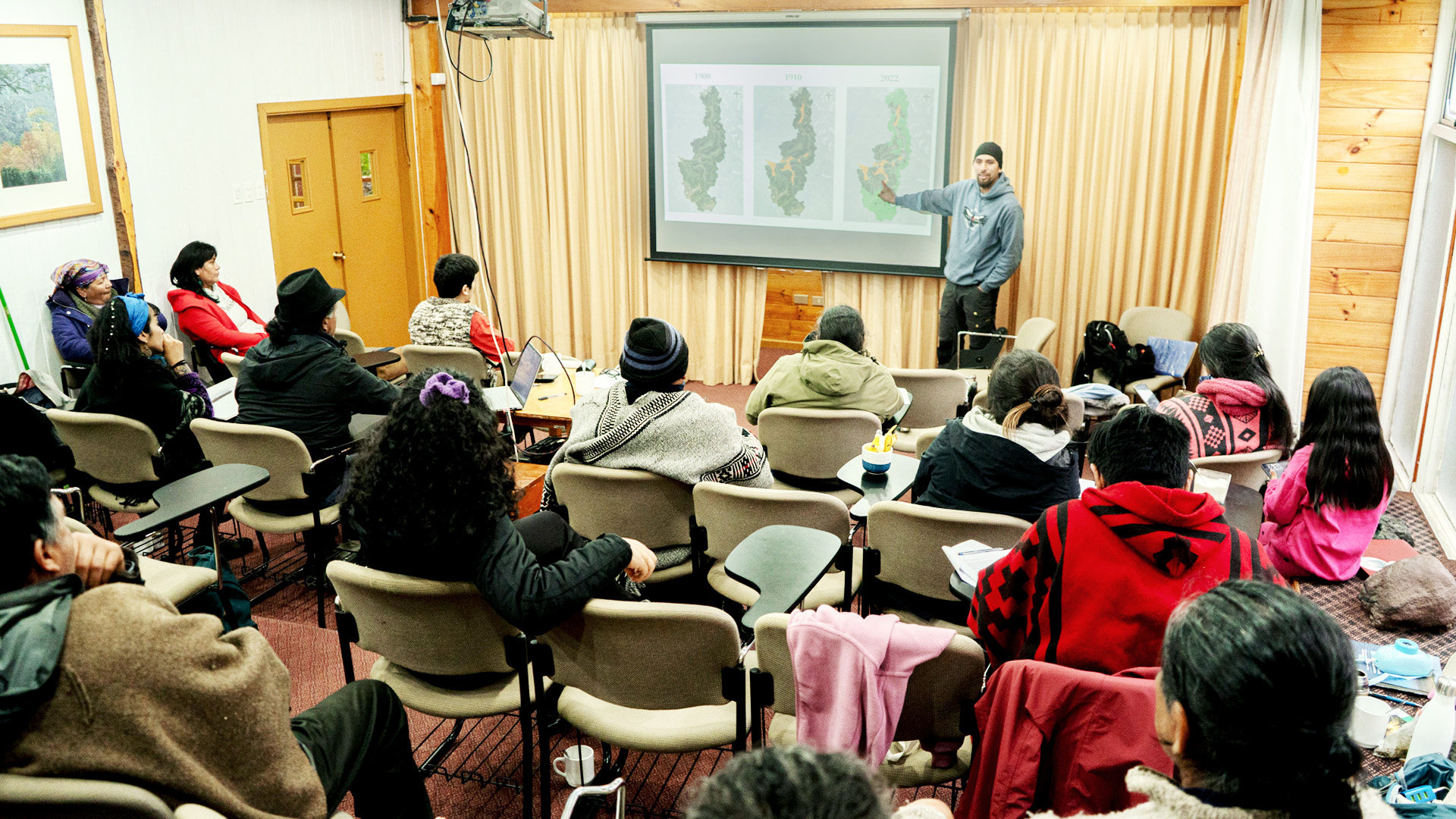
Day 3: Strengthening The ICCA Network in Chile
Finally, the morning of the last day was dedicated to establishing agreements and strategic guidelines regarding self-governance of the ICCA Network in Chile, while taking future challenges and actions into consideration. Among these actions, the need to generate internal organizational procedures for improved coordination and communication was highlighted. Likewise, consideration is being given to possible processes for legal formalization of the network in order to strengthen its advocacy and representation.
Over the course of the morning, updates were also shared on the work being carried out by the ICCA Consortium to develop its new five-year strategic plan, including next steps for sharing, approval, and implementation.
Javier Ancapan member of the Global Council and the Latin American Council of the ICCA Network
Yohana Coñuecar, co-coordinator of the Indigenous Women Network for the Defense of the Sea, ICCA Network gathering
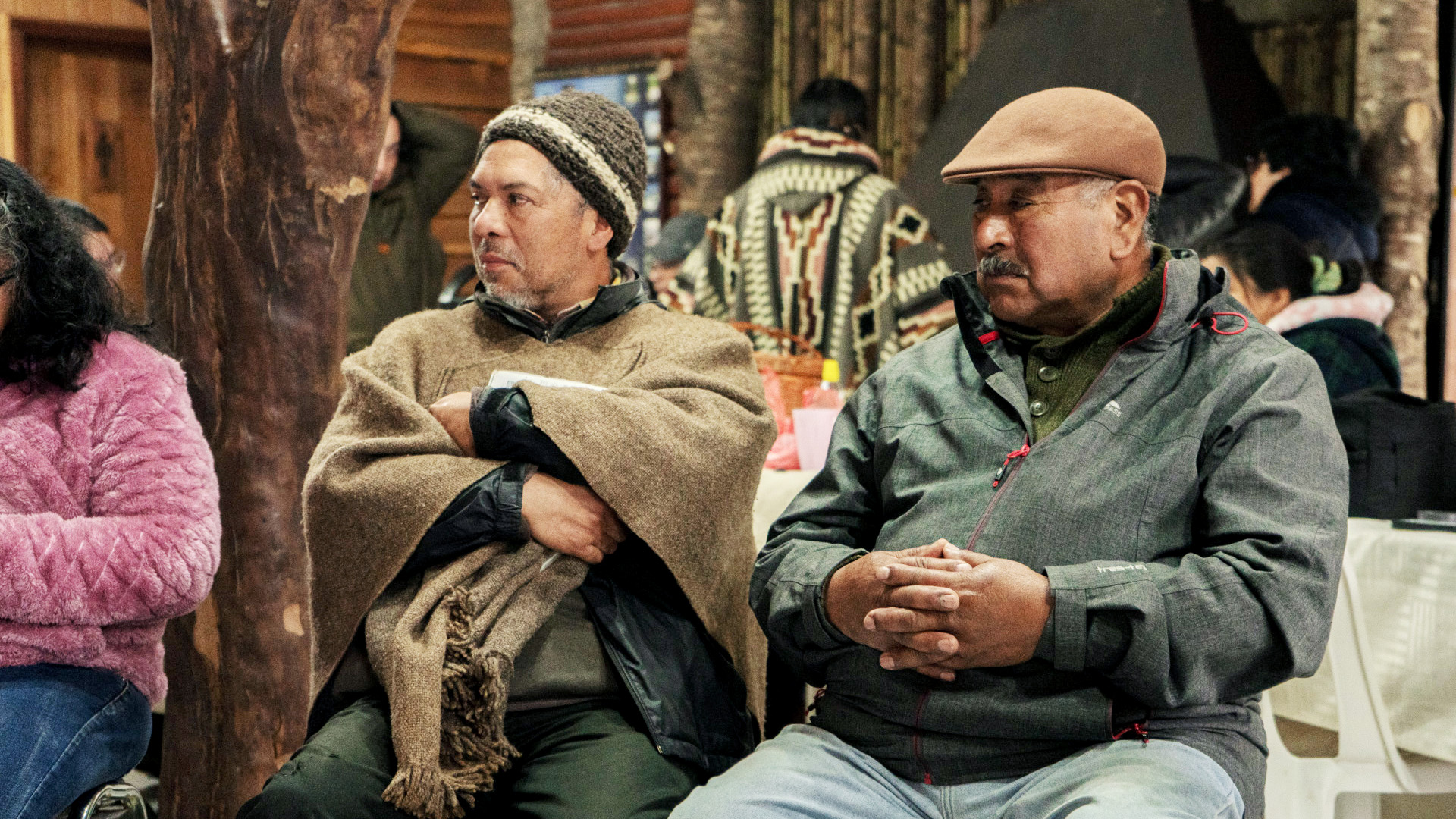
Acknowledgements
We offer our sincere thanks to each of the member organizations and invited guests who left their territories, communities, and families to take the time to share their rich experiences. We also thank the Ñielay Mapu Community, ngen ruka (hosts) of the meeting, for their hospitality and care. Finally, we thank Observatorio Ciudadano for their support in organizing this gathering and the ICCA Consortium and International Land Access Coalition for their assistance.
Fentren mañum, muchas gracias, many thanks.
